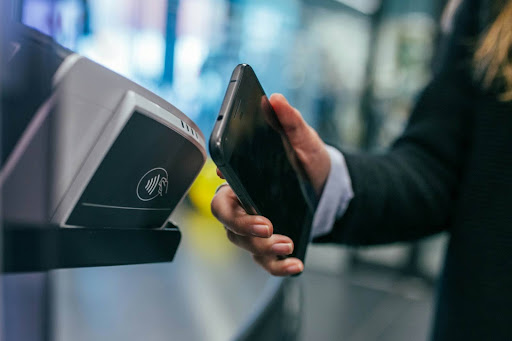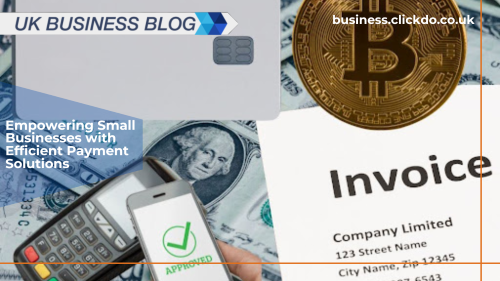Table of Contents
From keeping up with the latest payment technologies to ensuring customer satisfaction, the right payment solutions can make all the difference.
Let’s take a look at various payment solutions available to small businesses, the challenges they face, the benefits of adopting efficient payment systems, and future trends in this field.
Types of Payment Solutions for Small Businesses
Choosing the right payment solution is one of the crucial steps for small businesses. Here are some of the most popular options:
1. Point of Sale (POS) Systems
POS systems are more than just cash registers. Modern POS systems integrate with inventory management, and customer relationship management (CRM) software, and even provide sales analytics.
These systems streamline transactions, making them quicker and more secure.
Advantages:
- Integration with Other Systems: By linking with inventory management, POS systems help keep track of stock levels in real-time, reducing the risk of overstocking or running out of products.
- Customer Insights: Integrated CRM features allow businesses to gather and analyze customer data, enabling personalized marketing and improving customer retention.
- Sales Analytics: Access to detailed sales reports helps in understanding sales trends, identifying top-performing products, and making data-driven decisions.
Popular POS Systems:
- Square POS: Known for its user-friendly interface and robust features, Square POS is a favorite among small businesses.
- Shopify POS: Ideal for businesses with both online and offline operations, Shopify POS integrates seamlessly with its e-commerce platform.
- Lightspeed: Offers advanced inventory management features, making it suitable for retail businesses with extensive stock.
2. Mobile Payment Solutions

With the rise of smartphones, mobile payment solutions like Apple Pay, Google Wallet, and PayPal Here have become indispensable.
These solutions allow businesses to accept payments on the go, providing flexibility and convenience for both the business and the customer.
Advantages:
- Flexibility: Businesses can accept payments anywhere, whether at a physical store, a pop-up shop, or a market stall.
- Speed: Mobile payments are typically faster than traditional card payments, reducing checkout times and improving customer satisfaction.
- Security: Mobile payment solutions often incorporate advanced security features like tokenization and biometric authentication, enhancing transaction security.
Popular Mobile Payment Solutions:
- Apple Pay: Offers a seamless payment experience for iPhone users and is widely accepted at many retailers.
- Google Wallet: Compatible with both Android and iOS devices, Google Wallet is a versatile payment solution.
- PayPal Here: Allows businesses to accept credit and debit card payments using a mobile card reader, providing a simple and secure payment method.
3. Online Payment Gateways and Credit Card Processing

For e-commerce businesses, online payment gateways and credit card processing solutions such as Stripe, PayPal, Allied Payments, and Square are essential.
These gateways facilitate secure online transactions, support multiple payment methods including credit card payments, and often integrate with various e-commerce platforms. Also, Card Machine is one of the best option that make your payment gateway more simple.
Advantages:
- Wide Acceptance: Online payment gateways support a variety of payment methods, including credit/debit cards, digital wallets, and bank transfers, catering to diverse customer preferences.
- Security: These gateways use encryption and other security measures to protect sensitive customer data, reducing the risk of fraud.
- Integration: Many online payment gateways integrate seamlessly with e-commerce platforms, streamlining the payment process and enhancing the customer experience.
Popular Online Payment Gateways:
- Stripe: Known for its developer-friendly API, Stripe is highly customizable and supports a wide range of payment methods, including credit card processing.
- PayPal: Offers a trusted and familiar payment option for customers, with features like PayPal One Touch for quick and easy checkout.
- Square: Provides a comprehensive suite of tools for both online and offline payments, making it a versatile choice for small businesses.
4. Invoicing and Billing Software
Small businesses that provide services rather than products can benefit greatly from invoicing and billing software like QuickBooks, FreshBooks, and Xero. These tools automate the invoicing process, track payments, and manage recurring billing cycles.
Advantages:
- Automation: Automating the invoicing process saves time and reduces the risk of errors, ensuring that invoices are sent promptly and accurately.
- Payment Tracking: These tools provide real-time insights into the status of invoices, making it easy to track which invoices have been paid and which are still outstanding.
- Recurring Billing: For businesses that offer subscription services, invoicing software can automate recurring billing, ensuring that payments are collected on time.
Popular Invoicing and Billing Software:
- QuickBooks: Offers comprehensive accounting features in addition to invoicing, making it a popular choice for small businesses.
- FreshBooks: Known for its user-friendly interface and robust invoicing capabilities, FreshBooks is ideal for service-based businesses.
- Xero: Provides powerful invoicing and accounting features, with strong integration capabilities and a focus on collaboration.
Challenges Faced by Small Businesses
Despite the availability of various payment solutions, small businesses often encounter several challenges:
High Transaction Fees
Transaction fees can eat into profits, especially for businesses with tight margins. Understanding and negotiating these fees is crucial for maintaining profitability. Failure to manage these costs can lead to significant financial strain.
Small businesses must explore different providers to find the most cost-effective options.
Security Concerns
With the increase in cyber threats, ensuring the security of payment transactions is a top priority. Small businesses need to invest in secure payment solutions to protect their customers’ data and maintain trust.
A single security breach can damage a business’s reputation irreparably. Investing in robust security measures is not just an option but a necessity.
Integration Issues
Integrating new payment solutions with existing systems can be complex and time-consuming. Ensuring seamless integration is essential to avoid disruptions in business operations. Poor integration can lead to data inconsistencies and operational inefficiencies.
Businesses must plan and execute integration strategies carefully to minimize downtime.
Keeping Up with Technology
The rapid pace of technological advancement means that payment solutions are constantly evolving. Small businesses must stay informed and adaptable to keep up with the latest trends and innovations.
Falling behind on technology can result in a lost competitive advantage. Continuous learning and adaptation are key to leveraging new payment technologies effectively.
Benefits of Efficient Payment Solutions
Adopting efficient payment solutions offers numerous advantages for small businesses:
- Improved Cash Flow: Efficient payment solutions speed up the transaction process, reducing the time it takes for funds to be available. This improvement in cash flow can significantly enhance a business’s financial stability.
- Enhanced Customer Experience: Providing customers with multiple payment options and a seamless payment process enhances their overall experience. Satisfied customers are more likely to return and recommend the business to others.
- Better Financial Management: Payment solutions that integrate with accounting software provide real-time data and insights. This integration helps businesses manage their finances more effectively and make informed decisions.
- Increased Sales: By offering convenient and flexible payment options, businesses can attract more customers and increase sales. This flexibility is particularly important in today’s fast-paced, digital world.
Future Trends in Payment Solutions
The payment solutions landscape is continually evolving. Here are some trends to watch:
1. Contactless Payments

The COVID-19 pandemic has accelerated the adoption of contactless payments, a trend expected to continue as customers and businesses alike prioritize hygiene and convenience.
Contactless payments involve tapping a card or mobile device near a point-of-sale terminal equipped with near-field communication (NFC) technology.
Advantages:
- Speed and Efficiency: Transactions are completed quickly, reducing wait times for customers and increasing throughput for businesses.
- Enhanced Security: Contactless payments use tokenization and encryption to protect card information, making them more secure than traditional magnetic stripe transactions.
- Hygiene: Minimizing physical contact between customers and payment terminals addresses health concerns, a critical consideration in the post-pandemic world.
Future Outlook:
- Increased Adoption: More retailers and service providers are expected to adopt contactless payment options, integrating them with existing POS systems.
- Expansion Beyond Cards: Wearables and other smart devices equipped with NFC technology will become more common, offering additional payment methods.
2. Cryptocurrency Payments
Cryptocurrencies like Bitcoin and Ethereum are gaining traction as legitimate payment methods.
Businesses are increasingly accepting cryptocurrencies, driven by customer demand and the potential for lower transaction fees compared to traditional payment methods.
Advantages:
- Lower Fees: Cryptocurrency transactions often involve lower fees than credit card payments, which can benefit businesses with tight profit margins.
- Global Reach: Cryptocurrencies facilitate cross-border transactions without the need for currency exchange, making them ideal for international businesses.
- Security and Transparency: Blockchain technology ensures secure and transparent transactions, reducing the risk of fraud.
Future Outlook:
- Mainstream Acceptance: As regulatory frameworks become clearer, more businesses will likely accept cryptocurrencies as a standard payment method.
- Integration with Traditional Systems: Payment processors and financial institutions are developing solutions to integrate cryptocurrencies with traditional banking systems, making it easier for businesses to adopt this payment method.
3. Artificial Intelligence and Machine Learning
AI and machine learning are being used to enhance payment security, prevent fraud, and improve customer service.
These technologies analyze transaction data to identify patterns and anomalies, providing real-time insights and automating complex processes.
Advantages:
- Fraud Detection: AI can quickly detect and respond to fraudulent activities by analyzing large volumes of data and identifying suspicious patterns.
- Personalized Customer Experiences: Machine learning algorithms can analyze customer behavior to offer personalized recommendations and promotions, enhancing the customer experience.
- Operational Efficiency: AI-powered chatbots and virtual assistants can handle customer inquiries and support tasks, freeing up human resources for more complex issues.
Future Outlook:
- Advanced Fraud Prevention: Continued advancements in AI and machine learning will lead to more sophisticated fraud detection and prevention systems.
- Widespread Adoption: Businesses of all sizes will increasingly adopt AI and machine learning solutions to enhance payment security and operational efficiency.
4. Blockchain Technology

Blockchain technology offers secure and transparent transaction processes, which could revolutionize payment systems by reducing costs and increasing security.
Blockchain records transactions in a decentralized ledger, ensuring that all parties have access to a single source of truth.
Advantages:
- Security: Blockchain’s decentralized nature makes it highly resistant to hacking and fraud, providing a secure environment for transactions.
- Transparency: Every transaction is recorded on the blockchain, creating an immutable audit trail that enhances transparency and accountability.
- Cost Reduction: By eliminating intermediaries, blockchain can reduce transaction fees and processing times, benefiting both businesses and customers.
Future Outlook:
- Integration with Payment Systems: More payment processors and financial institutions will explore integrating blockchain technology into their systems to enhance security and efficiency.
- Development of New Applications: Blockchain will continue to drive innovation in payment solutions, with new applications emerging in areas such as supply chain finance and cross-border payments.
Adopting new technologies and staying ahead of industry developments will ensure that businesses remain competitive and meet the changing needs of their customers.
Author Profile
- Passionate content creator, contributor, freelance writer and content marketing allrounder.
Latest entries
 Business TipsJanuary 28, 2026Gamification in Business: How unique 2D Art Boosts Conversions
Business TipsJanuary 28, 2026Gamification in Business: How unique 2D Art Boosts Conversions Business TipsJanuary 8, 2026The Hidden Pitfalls Of Selling A Business
Business TipsJanuary 8, 2026The Hidden Pitfalls Of Selling A Business FeaturedJuly 31, 2025How Directors Can Earn £1,000 Tax-Free From Their Own Company
FeaturedJuly 31, 2025How Directors Can Earn £1,000 Tax-Free From Their Own Company FeaturedMay 28, 2025Government Unveils Major Crackdown on Tax Avoidance – Up to £6.5 Billion Could Be Reclaimed by 2029
FeaturedMay 28, 2025Government Unveils Major Crackdown on Tax Avoidance – Up to £6.5 Billion Could Be Reclaimed by 2029





